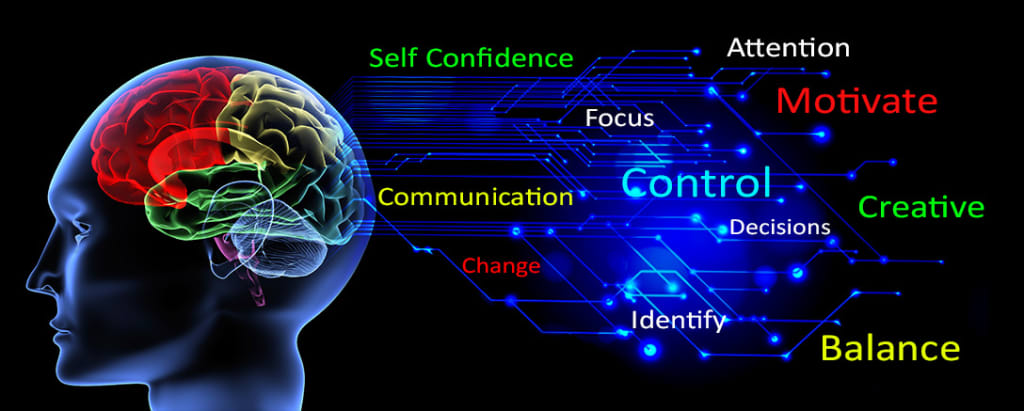Unveiling the Power of Neuro-Linguistic Programming: Debunking Myths and Exploring Real-World Applications
The potential of Neuro-Linguistic Programming

In the realm of self-improvement and personal development, Neuro-Linguistic Programming (NLP) has garnered significant attention over the years. Often hailed as a powerful tool for enhancing communication, overcoming mental barriers, and achieving personal growth, NLP has also been subject to its fair share of misconceptions and skepticism. In this article, we delve into the core principles of NLP, debunk common myths, and explore its real-world applications.
Understanding the Basics of Neuro-Linguistic Programming
Neuro-Linguistic Programming, often abbreviated as NLP, was developed in the 1970s by Richard Bandler and John Grinder. The foundation of NLP is based on the belief that there exists a connection between neurological processes (neuro), language (linguistic), and behavioral patterns learned through experience (programming). In essence, NLP proposes that by understanding and manipulating these interconnected components, individuals can enhance their communication skills, change unproductive thought patterns, and achieve personal excellence.
Debunking NLP Myths
- NLP is Manipulation: One common misconception is that NLP is a form of manipulation used to control others. This myth likely stems from the misinterpretation of certain NLP techniques. In reality, NLP emphasizes effective communication and rapport-building rather than manipulation. Techniques like mirroring and matching aim to establish trust and rapport by aligning with the other person's communication style, not manipulating them.
- Instant and Miraculous Results: Another myth surrounding NLP is that it guarantees instant and miraculous results. While NLP techniques can facilitate change, they are not magic spells that bring immediate transformation. Like any skill, mastering NLP techniques requires practice and consistency. Sustainable change often comes from a gradual shift in thought patterns and behaviors.
- Scientific Backing: Some critics argue that NLP lacks scientific validation. While NLP has faced challenges in terms of rigorous empirical research, it's important to note that there are studies supporting its efficacy in certain areas. However, more research is needed to establish a stronger scientific foundation for the various claims made by NLP practitioners.
Exploring Real-World Applications
- Effective Communication: One of the primary strengths of NLP lies in its ability to enhance communication skills. Through techniques such as "mirroring" and "matching," individuals can establish rapport and build stronger connections with others. These techniques involve subtly imitating the other person's body language, tone of voice, and even choice of words. This fosters a sense of familiarity and comfort, facilitating smoother and more effective communication.
- Overcoming Phobias and Anxiety: NLP offers techniques like the Fast Phobia Cure that aim to alleviate fears and phobias. By reprogramming the way the mind processes a specific fear, individuals can desensitize themselves and reduce the associated anxiety. This technique has shown promise in helping people overcome various phobias, from fear of heights to public speaking anxiety.
- Personal Empowerment: NLP can be a powerful tool for self-empowerment. Techniques like "anchoring" involve associating a specific emotional state with a physical gesture or trigger. Over time, individuals can use these anchors to access desired emotional states, such as confidence or motivation. This self-regulation technique can help individuals navigate challenging situations with a sense of control.
- Changing Limiting Beliefs: Our beliefs shape our reality, and sometimes, limiting beliefs can hold us back from reaching our potential. NLP offers techniques to identify and challenge these beliefs, replacing them with more empowering ones. By reframing negative thought patterns, individuals can unlock new opportunities and experiences.
- Enhancing Coaching and Therapy: NLP techniques are often integrated into coaching and therapy practices to facilitate personal growth. Practitioners can use techniques like the "Swish Pattern" to help clients replace undesirable habits or behaviors with more positive alternatives. NLP-based coaching can aid individuals in setting and achieving their goals by addressing underlying psychological barriers.
- Business and Leadership Development: NLP techniques are also applied in the realm of business and leadership development. Effective communication, rapport-building, and influencing skills are crucial for success in these areas. NLP principles can help professionals improve negotiation skills, build stronger teams, and lead with empathy.
Ethical Considerations and Caution
While NLP offers a range of potential benefits, it's essential to approach its practice with caution and ethical considerations. As with any self-improvement technique, NLP should not be used to manipulate or deceive others. Moreover, individuals should be wary of practitioners who promise miraculous results without a proper understanding of the principles and techniques involved.
Conclusion
Neuro-Linguistic Programming, despite its myths and controversies, has earned a place as a valuable tool for personal development and effective communication. By understanding its core principles and embracing its real-world applications, individuals can enhance their communication skills, overcome limiting beliefs, and achieve personal growth. While skepticism surrounding NLP is healthy, it's also important to recognize the potential benefits it can offer when practiced ethically and responsibly. As the field of NLP continues to evolve, further research and exploration will shed light on its true potential in helping individuals lead more fulfilling lives.
About the Creator
Enjoyed the story? Support the Creator.
Subscribe for free to receive all their stories in your feed. You could also pledge your support or give them a one-off tip, letting them know you appreciate their work.






Comments
There are no comments for this story
Be the first to respond and start the conversation.